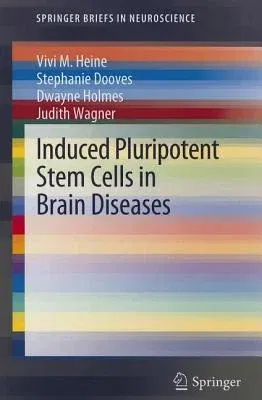Vivi M Heine
(Author)Induced Pluripotent Stem Cells in Brain Diseases: Understanding the Methods, Epigenetic Basis, and Applications for Regenerative Medicine.Paperback, 24 November 2011

Qty
1
Turbo
Ships in 2 - 3 days
In Stock
Free Delivery
Cash on Delivery
15 Days
Free Returns
Secure Checkout

Part of Series
Springerbriefs in Neuroscience
Print Length
59 pages
Language
English
Publisher
Springer
Date Published
24 Nov 2011
ISBN-10
9400728158
ISBN-13
9789400728158
Description
Product Details
Book Format:
Paperback
Country of Origin:
NL
Date Published:
24 November 2011
Dimensions:
22.61 x
14.99 x
0.51 cm
ISBN-10:
9400728158
ISBN-13:
9789400728158
Language:
English
Location:
Dordrecht
Pages:
59
Publisher:
Weight:
136.08 gm